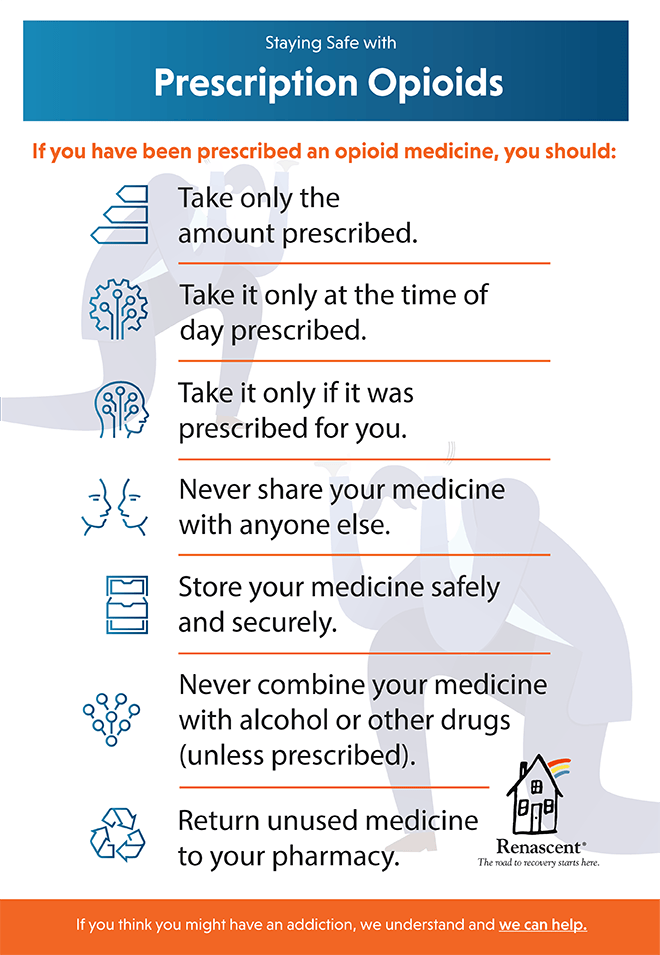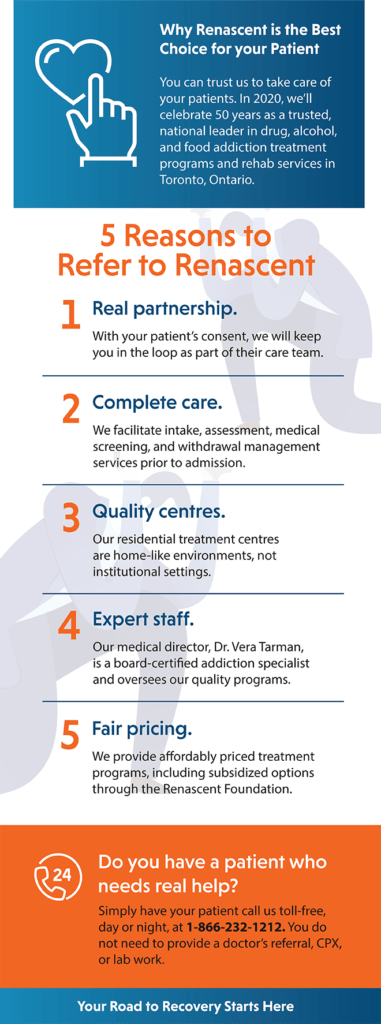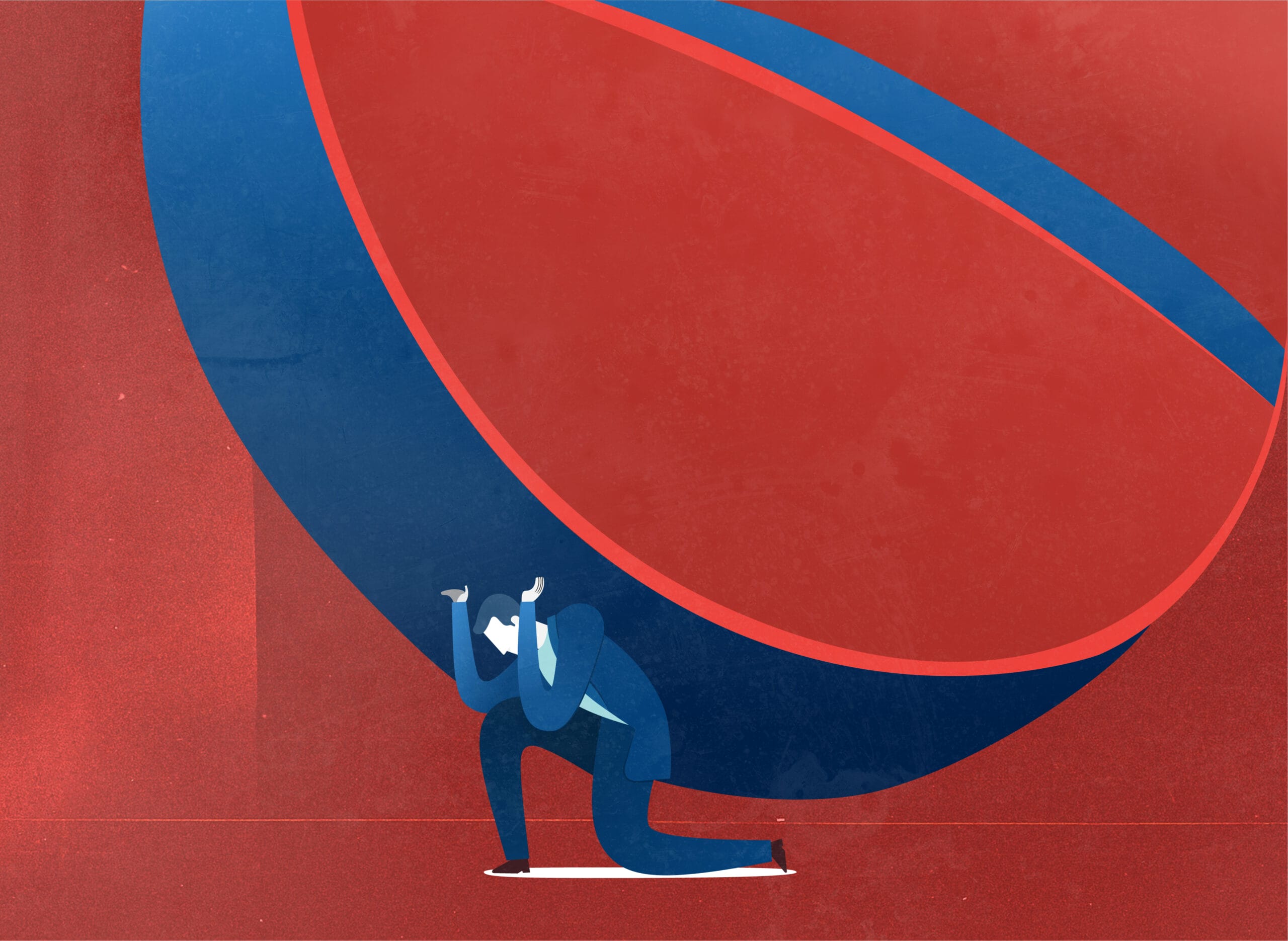The Opioid Crisis in Canada
Canada is facing a national opioid crisis. According to the Government of Canada, the growing number of overdoses and deaths caused by opioid drugs like fentanyl is now considered a public health emergency. The numbers* in Canada show that:
- The national opioid crisis continues to grow.
- 94% of opioid overdose deaths happen by accident.
- Young Canadians aged 15 to 24 are the fastest-growing population requiring hospital care from opioid overdoses.
The September 2019 National Report sadly shows that the current crisis is not going anywhere. Approximately 12,800 lives have been lost since 2016, at an average of one person every two hours in 2018. Many, many other people are hospitalized each year because of opioid overdoses.
Opioid addiction is powerful and dangerous, but real recovery is possible. As an accredited national leader in treating alcohol, drug, and food addictions for 50 years, Renascent offers specialized intensive inpatient and outpatient programs for opioid addiction. We’ve helped over 50,000 people recover from addiction. We can help you too.
In this article, we’ll help you understand the difference between prescription and illegal opioid drugs, the risk of opioid addiction, the signs and symptoms of problem use, opioid addiction treatment options in Canada, and how you can achieve lifelong healing and recovery from addiction to these powerful drugs.
Your journey to recovery from opioid addiction starts here.
*Source: Canada’s Opioid Crisis fact sheet
What are Opioid Drugs?
Opioid drugs, or opiates, are medications that relieve pain. When prescribed by a doctor and used properly, opioids can help people. But misuse and overuse of these powerful drugs can cause addiction, overdose, and death.
Some opioids like morphine and codeine are found naturally in opium poppies, while others are semi-synthetic (e.g., hydromorphone or hydrocodone), which means they are made by changing the chemical structure of a naturally occurring opioid. Synthetic opioids include methadone and meperidine, and are made entirely from chemicals in a lab without any naturally occurring opioid ingredients.
Opioids can be prescribed and used as tablets, capsules, syrups, solutions, or suppositories. Some people also inject opioids with needles or inhale opioids as a spray.
Types of medical opioid drugs that can be prescribed by a doctor for pain, or to sometimes treat coughs and diarrhea, but that can also be additive include:
Illegal opioid drugs, like fentanyl and heroin, are made in illegal labs or stolen and sold illegally on the street. Using opioids without a prescription from a doctor, or by getting a prescription for an opioid from more than one doctor, is also illegal.
Carfentanil — A Hidden and Dangerous Opiate
One of the most dangerous opioids right now is carfentanil, a synthetic drug very similar to fentanyl.
Carfentanil is an opioid that is used by veterinarians for very large animals like elephants. It is NOT made for human use. It is approximately 100 times more toxic than fentanyl and 10,000 times more toxic than morphine. This means carfentanil can be deadly even in extremely small amounts.
Carfentanil is being found in other illegal drugs like heroin and counterfeit pills and being made to look like prescription opioids. There is no easy way to know if carfentanil is in your drugs: you can’t see it, smell it, or taste it.
Its side effects are more dangerous than with other opiates: users are experiencing serious overdoses, and even brain death that requires them to live out the rest of their lives in nursing homes. Carfentanil is also currently the leading cause of opiate-related death.
Naloxone has been used to reverse carfentanil overdoses; however, greater than normal doses are required to revive those who have overdosed. If you are using illegal opioids, be aware of how to spot an overdose and how to help someone who is overdosing.
The Effects of Opioids on Your Body
Because opioids are a group of drugs that have morphine-like effects, they produce euphoria, or a mellow, relaxed “high”. At low doses as prescribed by a doctor, they can suppress the sensation of pain in your body and your emotional response to pain. But this is also what makes opioids highly addictive and dangerous.
Misusing and overusing opiate drugs can change your brain and body in ways that can make it hard to stop using. As your body gets used to a regular supply of the drug, you can experience withdrawal when you stop using them, or when you use less.
Also, when people take too much of an opioid, it slows down their breathing, often leading to unconsciousness and even death from overdose.
Opioid Side Effects
In their fact sheets on the opioid crisis, the Government of Canada outlines the many short- and long-term effects of taking both prescribed and illegal opioids.
In the short-term, using opioids can cause:
- Drowsiness, headaches, dizziness, and confusion
- Constipation
- Impotence in men
- Nausea and vomiting
- Slowed or difficulty breathing
With long-term use, opioids can cause:
- Increased tolerance
- Liver damage
- Infertility in women
- Worsening pain or “opioid-induced hyperalgesia”
- Life-threatening withdrawal symptoms in babies born to mothers taking opioids
Physical dependence, addiction, overdose, and death are also linked to using both prescribed and illegal opioids.
If you need help or someone to talk to about a possible addiction to an opioid drug, call Renascent for help. We can help you, your family, or friends deal with opioid dependence and addiction.
The Problem with Prescription Opiates
The opioid crisis in Canada means more and more people every year are misusing opioids, overdosing, and in far too many cases, dying from overdose. This includes people from every age group – from teens to older adults – and in every socioeconomic group. Canadians young and old, poor and rich, are being exposed to opioids and suffering from the effects of these powerful, dangerous drugs.
To combat this growing problem, the government has made problem opioid use illegal. This means that using opioids without a prescription from a doctor, or by getting a prescription for an opioid from more than one doctor, is illegal, just like selling or buying opioids on the street. Giving your prescription opioids to someone else, even for free, is also illegal.
It also means that healthcare professionals like doctors, dentists, and pharmacists are much more careful about prescribing opioid medicines to treat pain. You should feel comfortable talking to your doctor or dentist before taking any opioid medicine prescribed to you so that you understand the risks. And you can ask about other pain management options you might be able to use instead.
Spotlight on Tramadol, the “safe” opioid
Tramadol is a type of opiate prescribed by doctors to help their patients relieve moderate to moderately severe pain. It works by changing the way the brain and nervous system respond to pain.
The problem with Tramadol and other slow-release or long-acting analgesic (pain-relieving) opioids is that they are commonly touted as being a safer alternative to prescription narcotics. But, Tramadol is a narcotic opiate, and one that can be addictive with prolonged use.
If you’ve been prescribed Tramadol, don’t take any more of it, or more often, than you have been prescribed. If you think you might have a problem using Tramadol, talk to your doctor or call Renascent for a free consultation.

Signs of Opioid Addiction
It can be hard to admit you have a problem with drug use, especially one that has been prescribed to you by a doctor. It can be even harder to ask for help.
But recognizing the signs that your drug use is causing problems in your life at work or at home is the essential first step to accepting help and your successful recovery. This is why honesty is the first principle of every 12-step recovery plan.
You can begin by asking yourself if you are:
- Craving opioid drugs.
- Using opioids even when you experience harmful effects.
- Feeling like getting and using opioids has become the focus of your thoughts and daily life.
- Having withdrawal symptoms such as:
- Chills or sweating;
- Diarrhea, nausea, and stomach pain;
- Trouble sleeping;
- Body aches;
- Nervousness, irritability, and agitation.
These are all possible signs and symptoms of a drug addiction to opioids. At Renascent, we understand addiction and we can help.
And if you or someone you know is using opioids, there are also signs and symptoms of overdose you need to know about to stay safe.
Have you witnessed an overdose? Canada’s Good Samaritan Drug Overdose Act can legally protect you when seeking emergency help in an overdose situation.
Am I an Addict?
Yes, you might be addicted to opioids, but it’s important to not let this label stop you from getting help to quit. Addicts are always people first, just like anyone else. And you can get the treatment you need to recover fully from your addiction.
It might help you to keep in mind that addiction is considered a chronic disorder by the DSM-5 (Diagnostic and Statistical Manual of Mental Disorders, version 5), a handbook used widely by doctors to guide diagnosis of mental disorders and addictions.
This means that if you’re experiencing problems as a result of opioid use, it doesn’t make you a bad person, or any other label out there – it means you have a psychiatric brain disorder or disease that can be treated like any other health condition. And in Ontario, addiction is recognized as a disability in the Human Rights Code, so you are protected against discrimination based on your addiction from anyone you need to tell at work or elsewhere in your life.
People with addictions can and do experience recovery that lasts a lifetime. At Renascent, all our counsellors have lived experiences of addiction and long-term recovery, so you’ll have the understanding and support you need to ask for help, and at every step of your diagnosis, intake, and treatment.
Opioid Addiction Treatment – How to Quit Opioids
Quitting opioids and finding lifelong freedom from these powerful drugs is hard work, but recovery is possible.
An accredited, personalized, and abstinence-based treatment is recommended for most opioid addictions. At Renascent, we have found in our 50 years of experience, that this model means that even those with the most serious of drug addictions can find renewed health and healing, and a truly transformative experience.
For example, our comprehensive, Toronto-region, opioid addiction treatment programs take place in safe, serene, and caring environments inside beautifully restored heritage homes. Our abstinence-based model integrates 12-step facilitation with other best practices in clinical and medical approaches, which are proven to make a difference in long-term sobriety. Included in every treatment stay at Renascent:
- Education on your addiction and its physical, emotional, social, and spiritual effects
- Cognitive behaviour therapy to understand and change your addiction behaviour patterns
- 12-step facilitation
- Personalized one-on-one and solution-focused therapy
- Group therapy
- Art therapy
- Meditation and mindfulness
- Exercise, sleep, and healthy eating
Also, many people with an addiction to opioids will benefit from an inpatient treatment program. These types of intensive, residential treatment programs are like a kick-start to your recovery. A quality program in a home-like residence that is grounded in evidence and a client- and family-centred approach will be like a reset button for your healing and success.
Inpatient programs also have around-the-clock counselling and support, and education in practical recovery and life skills that will make long-term recovery more successful. Plus, a good inpatient treatment program gives you the time and tools you need to get to the underlying issues of your addiction and empower you to manage your addiction.
How to choose your addiction treatment program
It can be hard to decide what type of treatment program you need. There are a lot of options out there, and each person has different needs and resources for addiction treatment.
Our treatment option chart outlines some of the choices you have at Renascent, or through other healthcare providers. Don’t see what you need? Contact us anytime for a confidential assessment where we can match you with the support you’re looking for.
| If You Are: | We Might Suggest: |
| Looking for one-on-one support | A one-on-one counselling session with one of our addiction experts |
| Seeking a community who understands | Inpatient treatment with group counselling, or AA/NA/CA/OA meetings |
| Struggling with relapse | 42-days of Inpatient Treatment, followed by active participation in our Continuing Care program. |
| In recovery, but looking to connect with informal support | Getting involved with Renascent’s Alumni Care community. There are regular meetings, engaged committees, and events for everyone. We’re here for life! |
| Concerned how addiction in your family might be impacting your children | Safe programs geared for kids and parents/caregivers, such as Children’s Healthy Coping Skills |
| Worried about your family member or loved one, including siblings, close friends, and partners | Our Essential Family Care Programs, particularly the Introduction to Family Care |
| A parent in active recovery | A weekend course like Parenting in Recovery, to help you boost your parenting skills |
| Concerned addiction is affecting your work or workplace | Our Corporate Complete Care Advantage, designed to support employees and employers as they navigate addiction and recovery in the workplace. |
| Worried about life after treatment | Our Continuing Care Program, to support you as you re-integrate into your daily home life. |
| Looking for housing after treatment | One of our many Community Partners who offer post-treatment housing. Call us at 1-866-232-1212 and we can put you in touch. |
| Looking to get “clean” or detox. | The ConnexOntario Helpline, 1-866-531-2600, can connect you with Withdrawal Management Services. If you are interested in treatment following detox, call 1-866-232-1212 and we’ll coordinate this. |
Don’t see what you need? Contact us anytime for a confidential assessment where we can match you with the support you’re looking for.
Freedom and Recovery from Opioid Addiction
Staying connected and finding healthy support systems for your new, sober life are key to lifelong freedom and recovery from addiction.
Finding an after-treatment care program, like the Continuing Care and Alumni programs offered at Renascent, extends your counselling support, peer support, and education following your primary intensive inpatient or outpatient treatment period. The goal of a program like Continuing Care is to support you to maintain your abstinence, and help you re-establish it if you struggle with relapse.
For example, our Continuing Care program is available to clients as an in-class format or over the phone, while our Alumni program goes an additional step by providing healthy, safe, and strong social community foundations for long-term recovery to thrive. From group meetings to social events and volunteer opportunities, an alumni program can be a vital part of your personal growth and long-term recovery.
Other peer support programs in the recovery community, like a 12-step meeting through Heroin Anonymous or other group for opioid addictions, are also built on drawing your power to stay sober from people who have walked the same journey as you.
Often, these kinds of peer-support and after-treatment care programs offer just the type of friendship you need with positive ways to celebrate and value your sobriety – key ways to stay connected to your support systems and your reasons for quitting opioids once and for all.
For Healthcare Professionals – Refer a Patient
If you’re a healthcare professional, you’re in the unique position of being able to help your patients and their families reclaim their lives from addiction. Renascent is pleased to partner with physicians and other healthcare professionals to facilitate your patient’s treatment and ongoing recovery.
Our accredited, abstinence-based treatment model results in treatment outcomes that are among the best in Canada. Referring your patients to Renascent is a decision you can trust.

Your Road to Recovery Starts Here
Your addiction recovery journey begins with “I need help.” We’ve helped over 50,000 people recover from addiction. We can help you too.
For a free and confidential consultation with one of our counsellors, call 1-866-232-1212 anytime, day or night, or Contact Us Today.

